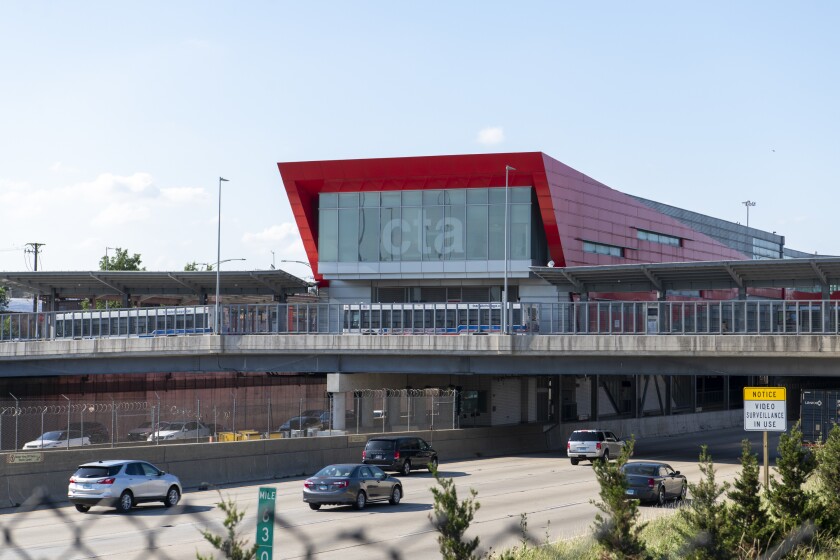State legislators are proposing legislation that would create a transit agency to oversee public transit across northeastern Illinois and provide an additional $1.5 billion in annual funding for public transportation.
State Sen. Ram Villivalam, D-Chicago, and state Rep. Eva-Dina Delgado, D-Chicago, have introduced the Metropolitan Mobility Authority Act, which would create the Metropolitan Mobility Authority to oversee all public transit operations and replace the Regional Transportation Authority.
They say the measure aims to avoid overlap and competition for money between the RTA, Chicago Transit Authority, Pace and Metra — which they said has led to a delay in integrated fares — and instead provide “coordinated” services. The metro area once had just the RTA and CTA, while Metra and Pace were created later.
“The status quo doesn’t work for taxpayers either, who are paying for duplicate bureaucracies performing overlapping functions instead of funding one agency that makes transit work better across Chicagoland,” Delgado said in a news release. “Reform must come first.”
“We need to have a robust conversation and make major strides to achieve the regional transit system our constituents deserve, one that is integrated and commuter-centered,” Villivalam added.
RTA Chairman Kirk Dillard said the agency was open to changes, but adequate funding had to come along with that for the “chronically underfunded” system.
“We welcome discussion on reforms that strengthen coordination, efficiency, and accountability across the regional transit system,” Dillard said in a statement to the Chicago Sun-Times. “But reforms must come with the necessary funding to upgrade service and maximize transit’s impact on the region’s economy, climate, and access to opportunity for all residents.”
Pace is reviewing the legislation but is interested in working with state lawmakers to improve transportation in the area, spokesperson Maggie Daly Skogsbakken said. The current system means Pace can respond to specific needs of commuters, and the suburban bus operator worries consolidation could threaten that, she said.
“Changes must reflect the actual service needs of our region and address the real problem, which is a historic lack of investment in our transit system, especially in the suburbs,” Skogsbakken said.
The new office would consist of 18 voting directors — the governor would choose three; the mayor of Chicago and president of the Cook County Board would select five each; and the chief executives of DuPage, Kane, Lake, McHenry and Will counties will each get one. A chair would then be chosen by the 18 directors but not be someone from that body.
Six non-voting members would also join them: the secretary of the Illinois Department of Transportation, the chair of the Illinois Tollway, an organized labor representative chosen by the governor, the chair of the agency’s citizen advisory board and a representative each for the business and disabled communities, chosen by the board.
A companion bill would set aside $1.5 billion every year from state funds for operational costs for the transit agencies, though Delgado said it wouldn’t come without “restructuring transit governance to put safety, frequency and reliability for riders first.”
Transit plays a key role in ensuring equitable access to economic opportunities for Illinois residents, said Jeremy Cuebas, a CTA rider and transportation organizer in Belmont Cragin.
“Equity starts with affordability — that means no more giant fare hikes and ending double charging riders if they use CTA or Pace to connect to Metra or vice versa,” Cuebas said.
The proposed legislation is the first part of the Clean and Equitable Transportation Act, a three-part campaign that seeks to reform and fund transit, expand the use of zero-emissions vehicles, set targets to curb greenhouse gas emissions and make the transportation industry 100% carbon-free by 2050. The entire legislative package will be unveiled in Springfield on Tuesday.
A report published last year and prepared by the Chicago Metropolitan Agency for Planning at the behest of the General Assembly recommended organizational reforms, including consolidating the four regional transit agencies under one board, new taxes and changing fee structures.
Contributing: Mary Norkol

















